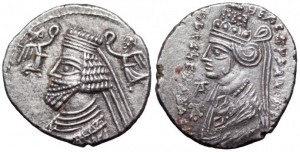Montaigne 1.17

…when I read history, which is written by all sorts and conditions of men, I usually consider what kind of man the author is: if his profession is that of letters only, he teaches me principally style and language; if he is a physician, I am the more ready to believe what he says of the temperatures of the air, of the health and constitution of princes, of wounds and maladies; if a lawyer, we must accept his observations on controversies about rights, laws, and the establishment of civil government, and the like; if a theologian, on the affairs of the church, on ecclesiastical censures, dispensations and marriage; if a courtier, on manners and ceremonies; if a soldier, on that which appertains to his profession, and principally his account of the exploits on which he was personally engaged; if an ambassador, on intrigues, negotiations, and agreements, and the manner of conducting them.
